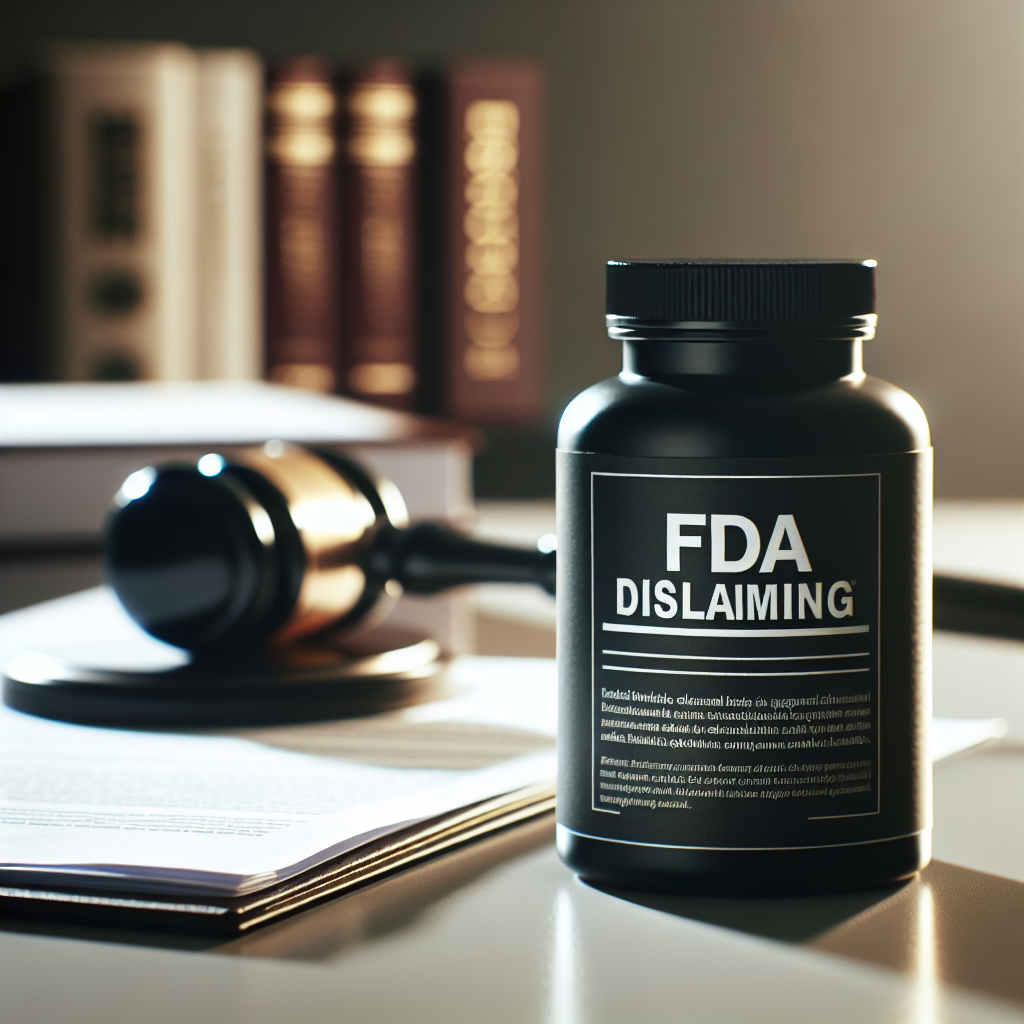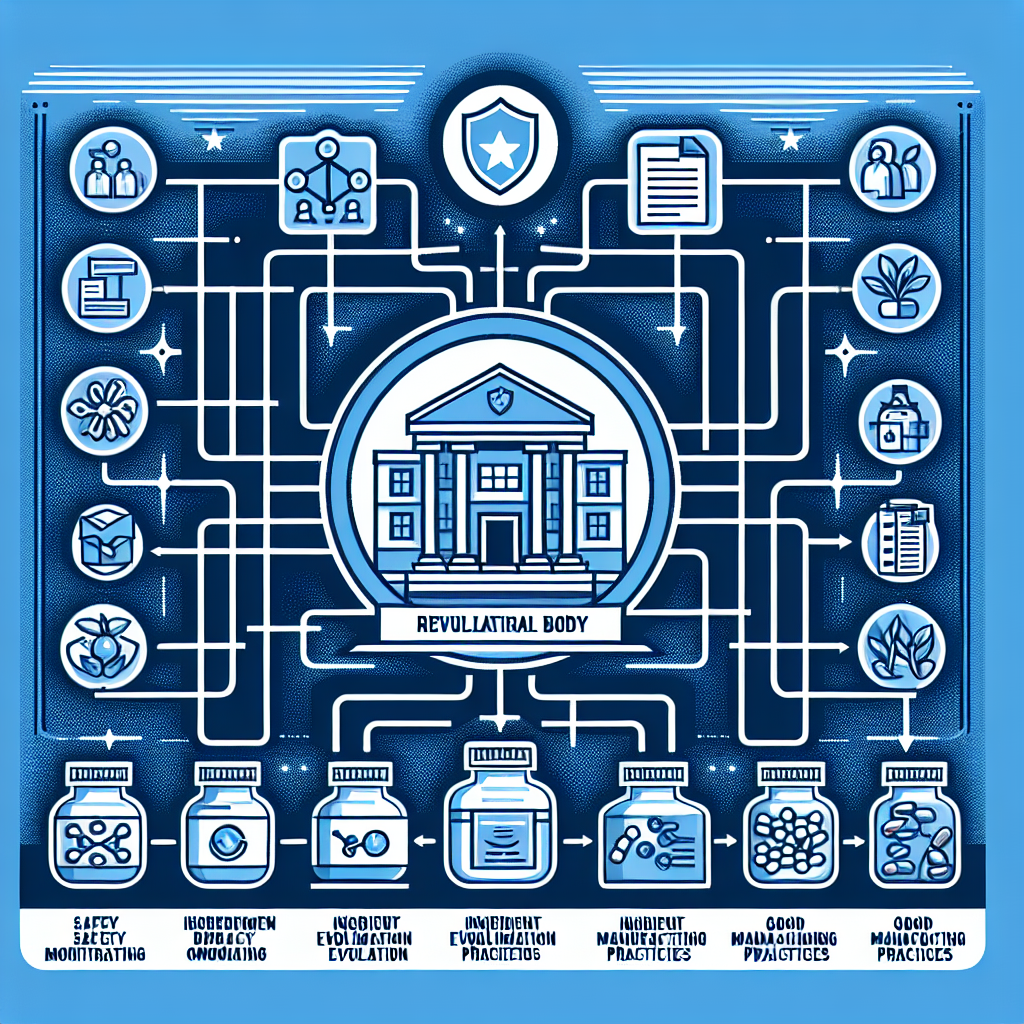In today’s health-conscious world, the vitamin and mineral supplements industry is booming. Yet, for supplement manufacturers and product developers, navigating the complex landscape of FDA regulations can be challenging. Understanding these regulations isn’t just about compliance—it’s about building consumer trust and ensuring product quality in a competitive market.
The vitamin and mineral supplements list on your products must adhere to strict regulatory guidelines that many consumers and even some manufacturers don’t fully comprehend. Whether you’re formulating new products or evaluating current offerings, knowing these regulations inside and out is essential for success in the nutritional supplement industry.
The Regulatory Framework: DSHEA and Its Impact
Understanding the fundamental regulatory framework is essential for anyone involved in vitamin and mineral supplement development, marketing, or distribution.
The cornerstone of dietary supplement regulation in the United States is the Dietary Supplement Health and Education Act of 1994 (DSHEA). This landmark legislation fundamentally changed how vitamin and mineral supplements are regulated, creating a distinct category separate from conventional foods and pharmaceuticals. For a deeper understanding, explore our article on DSHEA supplements and the hidden rules every health brand should know.
Under DSHEA, dietary supplements—including the vitamin and mineral supplements list on your products—don’t require pre-market approval from the FDA. However, this doesn’t mean they’re unregulated. Instead, the FDA monitors these products after they reach the market, shifting much of the responsibility for safety and accuracy to manufacturers and distributors. This framework is explored further in our guide to why vitamins aren’t FDA approved.
“DSHEA created a unique regulatory category that balances consumer access to supplements with necessary safety measures,” explains Dr. Janet Collins, a regulatory expert in the supplements industry. “Manufacturers must understand that this freedom comes with significant responsibility.”
This regulatory framework requires that all supplements include a “Supplement Facts” panel on their labels—similar to the “Nutrition Facts” panel on foods but tailored specifically for dietary supplements. This panel must accurately list all ingredients, including the vitamin and mineral supplements list with precise quantities per serving. The FDA’s dietary supplement regulations provide detailed guidance on these requirements.
Critical Labeling Requirements for Vitamin and Mineral Supplements
When it comes to labeling requirements, the details matter significantly. The FDA mandates that manufacturers ensure their products contain at least 80% of the declared amount of any vitamin or mineral listed on the label. This standard helps maintain truth in labeling and prevents misleading consumers about the potency of supplements.
Your vitamin and mineral supplements list must adhere to these key labeling requirements:
Accurate ingredient identification: Each ingredient must be properly identified using its established name.
Quantity declarations: The amount of each vitamin and mineral must be listed per serving, along with the percent Daily Value (%DV) when established.
Serving information: Clear serving size and servings per container must be prominently displayed.
Ingredient order: Ingredients must be listed in descending order by weight.
Other ingredients: All excipients, binders, and additives must also be disclosed.
Additionally, any health claims made on supplement labels must be substantiated by scientific evidence. The FDA requires that such claims be accompanied by a disclaimer stating: “These statements have not been evaluated by the Food and Drug Administration. This product is not intended to diagnose, treat, cure, or prevent any disease.” Understanding these FDA disclaimer requirements is essential for avoiding costly penalties.
“The 80% rule is particularly important for quality control,” notes Maria Henderson, a quality assurance director at a leading supplement manufacturer. “It means your product must consistently deliver what’s promised on the label, which requires rigorous testing protocols throughout the manufacturing process.”
Truth in Marketing: Claims and Scientific Evidence
Marketing claims are heavily scrutinized by the FDA. Ensuring your claims are compliant can prevent costly recalls and enforcement actions.
Beyond basic labeling requirements, the FDA closely monitors marketing claims associated with vitamin and mineral supplements. These claims generally fall into three categories:
Health claims: These establish a relationship between a nutrient and reduced risk of disease. These require significant scientific agreement or qualified health claim status from the FDA.
Structure/function claims: These describe how ingredients affect normal structure or function in the human body (e.g., “calcium builds strong bones”). Manufacturers must notify the FDA within 30 days of marketing products with such claims.
Nutrient content claims: These characterize the level of nutrients in a product (e.g., “high in vitamin C”) and must meet specific thresholds established by the FDA.
The vitamin and mineral supplements list on your product can only make claims that are truthful, not misleading, and supported by scientific evidence. This protection benefits both consumers, who rely on accurate information to make health decisions, and manufacturers, who can differentiate their products based on legitimate benefits. For a deeper understanding of regulatory frameworks, explore our article on navigating the regulatory maze of supplement approvals.
Recent FDA enforcement actions highlight the importance of compliance. In 2022 alone, the agency issued warning letters to dozens of supplement companies for making unsubstantiated claims, particularly around immune support and COVID-19 prevention.
“Scientific substantiation isn’t just about avoiding FDA warnings,” explains Dr. Robert Jenkins, a supplement formulation consultant. “It’s about building credibility in a crowded marketplace. Manufacturers who invest in research to support their claims ultimately gain stronger market position.”
Consumer Awareness: What to Look for on Labels
For supplement manufacturers and developers, understanding consumer awareness of labeling requirements is crucial for creating products that build trust. Educated consumers increasingly look for specific elements on supplement labels before making purchasing decisions.
A properly labeled vitamin and mineral supplements list should enable consumers to:
- Identify exactly what vitamins and minerals are included and in what forms
- Understand the potency of each ingredient and how it compares to recommended daily values
- Recognize any allergens or unwanted ingredients
- Verify that health claims are accompanied by the required FDA disclaimer
- Find contact information for the manufacturer or distributor
“Consumer education about supplement labeling has increased dramatically in the past decade,” observes consumer behavior analyst Sarah Thompson. “Today’s supplement users are more likely to scrutinize labels and research ingredients before purchase, making transparency more important than ever.”
This growing consumer awareness aligns perfectly with NutraAeon’s philosophy of transparency in nutritional ingredient sourcing. As a trusted global partner for nutritional ingredient sourcing, NutraAeon emphasizes complete documentation and full supply chain visibility—values that today’s informed consumers demand.
When manufacturers partner with ingredient suppliers who prioritize transparency, they can more confidently meet FDA labeling requirements and build consumer trust. Each ingredient in the vitamin and mineral supplements list should be traceable to its source, with appropriate documentation to verify its identity, purity, and potency.
Beyond Compliance: NutraAeon’s Commitment to Excellence
Quality Partnership: Working with suppliers who understand regulatory requirements can significantly reduce compliance risks.
Understanding FDA regulations isn’t just about avoiding penalties—it’s about embracing quality as a core value. This philosophy resonates deeply with NutraAeon’s approach to nutritional ingredient sourcing.
The vitamin and mineral supplements list on your product is only as good as the ingredients that go into it. That’s why NutraAeon has established industry-leading testing protocols and rigorous quality control for every ingredient, consistently exceeding USP and FDA expectations.
“When manufacturers partner with ingredient suppliers who are committed to quality and regulatory compliance, they gain a significant advantage,” says Michael Chen, Quality Assurance Director at NutraAeon. “Our comprehensive documentation and certificates of analysis enable our partners to confidently meet labeling requirements and substantiate their claims.”
NutraAeon specializes in premium vitamin and mineral ingredients that stand up to regulatory scrutiny, including:
- High-purity amino acids like L-Theanine, L-Tryptophan, and L-Serine
- Comprehensive vitamin offerings including multiple forms of Vitamin C and the complete B-Complex family
- Premium mineral compounds featuring food-grade Magnesium Oxide
Each of these ingredients undergoes rigorous testing to ensure it meets or exceeds the potency levels that will be declared on the final product label. This commitment to quality aligns perfectly with FDA expectations for accurately labeled supplements and follows comprehensive quality control protocols that exceed industry standards.
The Future of Supplement Regulation
The regulatory landscape for dietary supplements continues to evolve. In recent years, the FDA has signaled increased attention to supplement safety and labeling accuracy, with particular focus on new dietary ingredients and products making aggressive health claims.
For forward-thinking supplement manufacturers, staying ahead of regulatory changes is essential. This requires partnerships with ingredient suppliers who not only understand current regulations but anticipate future developments. Staying informed about FDA banned supplements is particularly crucial for product development teams.
“We believe the future of supplement regulation will emphasize greater transparency and verification,” explains Dr. Lisa Wang, Regulatory Affairs Specialist at NutraAeon. “Manufacturers who build quality systems now that exceed current requirements will be better positioned as regulations inevitably tighten.”
As the industry evolves, the vitamin and mineral supplements list on your products will likely face even greater scrutiny—both from regulators and consumers. Building relationships with knowledgeable ingredient partners who can provide regulatory guidance becomes increasingly valuable in this environment.
Conclusion: Quality as a Competitive Advantage
Key Takeaway: Regulatory compliance and quality ingredients aren’t just requirements—they’re competitive advantages in the supplement marketplace.
Navigating FDA regulations for vitamin and mineral supplements requires diligence and expertise, but the payoff extends far beyond mere compliance. Manufacturers who embrace these standards as opportunities to demonstrate quality gain significant competitive advantages in the marketplace.
The vitamin and mineral supplements list on your product tells a story—about your commitment to accuracy, your investment in quality, and your respect for consumer trust. When that list is backed by carefully sourced ingredients with complete documentation and testing, it becomes a powerful market differentiator.
NutraAeon’s vision to be the premier global sourcing partner for nutritional ingredients aligns perfectly with this quality-focused approach. By helping manufacturers create products that stand out through scientific expertise and commitment to excellence, NutraAeon empowers its partners to turn regulatory requirements into competitive advantages.
In today’s increasingly informed and quality-conscious marketplace, supplement manufacturers who partner with trusted ingredient suppliers like NutraAeon don’t just meet FDA requirements—they exceed consumer expectations, building brands that inspire confidence and loyalty.
For supplement manufacturers and developers committed to excellence, understanding FDA regulations isn’t a burden—it’s an opportunity to demonstrate the quality and integrity that define truly exceptional products.


